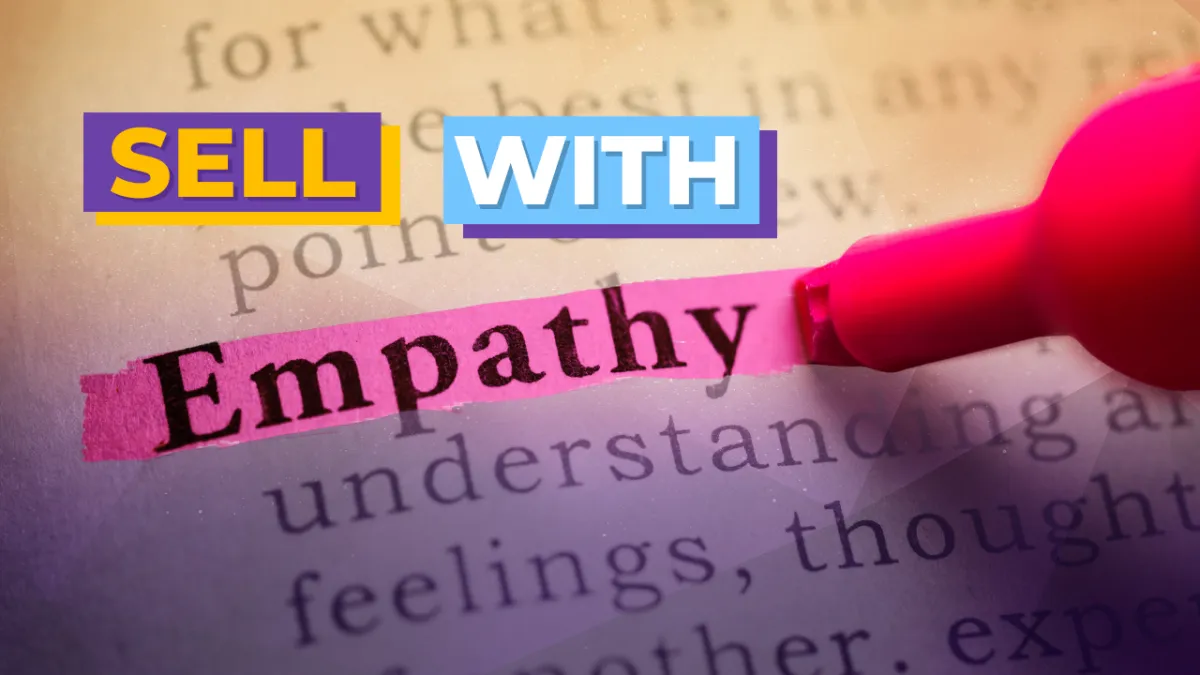
The Power of Emotional Intelligence in Sales
“Sales isn’t about convincing people to buy — it’s about understanding them so deeply that buying becomes the natural next step.”
- Dan Rochon
In a world where customers can compare products, reviews, and prices instantly, what truly separates a great salesperson from a good one?
It’s not the slick presentation, the closing line, or the perfect pitch — it’s emotional intelligence (EQ).
Emotional intelligence is the skill that allows salespeople to understand their own emotions, recognize the emotions of others, and use that awareness to build authentic relationships, influence decisions, and close deals with integrity.
This isn’t soft science — it’s the hard edge that top performers use to create consistent, predictable income and lasting client loyalty.
What Is Emotional Intelligence and Why It Matters in Sales
Emotional intelligence is your ability to understand and manage emotions — both yours and your client’s. In sales, that means reading the unspoken signals behind objections, hesitation, or excitement.
According to Harvard research, 95% of purchasing decisions are made subconsciously, driven by emotion rather than logic. That means when a buyer says, “I need to think about it,” what they often mean is, “I’m not emotionally certain yet.”
The emotionally intelligent salesperson helps create that certainty — not by pushing harder, but by connecting deeper.
The Five Core Skills of Emotionally Intelligent Salespeople
1. Self-Awareness: Know What You Bring Into the Room
Before you influence others, you must understand yourself. Self-awareness means recognizing your emotional triggers, tone, and energy.
Ask yourself before every conversation: “What emotional state am I projecting right now — and how will it affect my client?”
Salespeople who are self-aware communicate with clarity, confidence, and authenticity.
2. Self-Regulation: Stay Grounded Under Pressure
Deals get tense. Buyers get anxious. The market shifts.
Your ability to manage your emotions — to remain calm, centered, and focused — often determines your success more than any script.
A well-regulated salesperson doesn’t take rejection personally; they see it as feedback. They don’t get defensive; they get curious.
3. Motivation: Drive That Comes From Purpose
The best salespeople aren’t motivated by money alone — they’re motivated by meaning.
They understand the deeper “why” behind their work. That passion becomes contagious.
When you truly believe your product or service helps people, your enthusiasm transfers naturally. That’s influence without manipulation — leadership through conviction.
4. Empathy: The Hidden Superpower of Connection
Empathy is more than being nice — it’s about understanding what drives your customer’s decisions beneath the surface.
An empathetic salesperson can identify the fear behind hesitation (“What if this doesn’t work for me?”) or the hope behind urgency (“This could change everything.”).
When you respond to emotions rather than resist them, you create trust — and trust converts faster than any closing line.
5. Social Skills: Influence Through Authentic Relationships
Emotional intelligence shines in conversation. Great salespeople don’t dominate the room — they guide it.
They know how to listen actively, read body language, resolve conflict, and communicate clearly.
When your clients feel seen and heard, they don’t just buy — they follow your lead.
How Emotional Intelligence Improves Sales Performance
Salespeople with high EQ consistently outperform their peers.
Here’s why:
They build trust and rapport faster.
They handle objections calmly instead of defensively.
They close deals with confidence, not pressure.
They create repeat business because clients feel valued.
Harvard Business Review found that emotionally intelligent salespeople close 15% more deals than their counterparts. EQ doesn’t just feel good — it pays.
Training Emotional Intelligence in Sales Teams
Emotional intelligence can be developed like any other skill.
Effective training includes:
Mindfulness and reflection – to increase self-awareness and self-regulation.
Role-playing – to practice empathy and communication in real-world scenarios.
Feedback loops – to measure growth and identify blind spots.
Sales leaders should model emotional intelligence, creating a culture where feedback is welcomed and emotional awareness is celebrated.
As EQ improves, so does team performance, collaboration, and retention.
The Future of Sales Belongs to Emotionally Intelligent Leaders
Technology is changing sales — but human connection remains irreplaceable.
AI can analyze behavior, but it can’t build trust.
Automations can follow up, but they can’t feel.
The salesperson of the future is part strategist, part psychologist, and part storyteller.
Their edge is emotional intelligence — the skill that helps them influence ethically, lead with empathy, and create clients for life.
Final Thoughts
Emotional intelligence isn’t a soft skill — it’s a sales advantage.
When you master your emotions, you master your influence.
By developing self-awareness, empathy, and authentic communication, you don’t just sell more — you lead more.
If you want to elevate your influence and create consistent, predictable income, start with this:
Understand emotions, and you’ll understand decisions.
